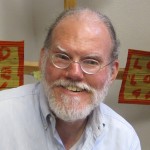Faculty
Anna Agbe-Davies
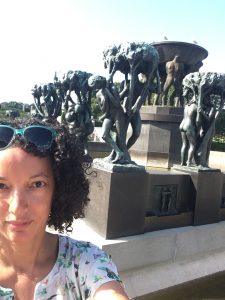 I am an historical archaeologist interested in the plantation societies of the colonial southeastern US and Caribbean, with a particular focus on the African diaspora. My first book examined locally-made clay tobacco pipes from rural and urban sites in and around Jamestown, Virginia as a means to understand the development of a concept of “race” in the early colony. My recent research projects include excavation and community collaboration at the sites of New Philadelphia, Illinois, and the Phyllis Wheatley Home for Girls on the south side of Chicago. In 2014, I started two new projects both in Durham, North Carolina. One is focused on Stagville State Historic Site, the other is at the childhood home of civil rights activist Pauli Murray.
I am an historical archaeologist interested in the plantation societies of the colonial southeastern US and Caribbean, with a particular focus on the African diaspora. My first book examined locally-made clay tobacco pipes from rural and urban sites in and around Jamestown, Virginia as a means to understand the development of a concept of “race” in the early colony. My recent research projects include excavation and community collaboration at the sites of New Philadelphia, Illinois, and the Phyllis Wheatley Home for Girls on the south side of Chicago. In 2014, I started two new projects both in Durham, North Carolina. One is focused on Stagville State Historic Site, the other is at the childhood home of civil rights activist Pauli Murray.
Florence Babb (RDP co-chair, 2021-22)
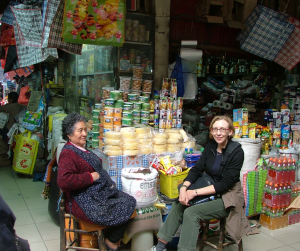 As a cultural anthropologist, I have long been interested in the intertwined inequalities of gender, race, class, and sexuality in Latin America. Much of my work has focused on Peru, but I have also carried out research in Nicaragua, Cuba, and Southern Mexico. I teach courses in feminist anthropology, Latin American studies, and the anthropology of travel and tourism, among other topics. I am the author of Between Field and Cooking Pot: The Political Economy of Marketwomen in Peru (1998[1989]); After Revolution: Mapping Gender and Cultural Politics in Neoliberal Nicaragua (2001); The Tourism Encounter: Fashioning Latin American Nations and Histories (2011); and Women’s Place in the Andes: Engaging Decolonial Feminist Anthropology (2018).
As a cultural anthropologist, I have long been interested in the intertwined inequalities of gender, race, class, and sexuality in Latin America. Much of my work has focused on Peru, but I have also carried out research in Nicaragua, Cuba, and Southern Mexico. I teach courses in feminist anthropology, Latin American studies, and the anthropology of travel and tourism, among other topics. I am the author of Between Field and Cooking Pot: The Political Economy of Marketwomen in Peru (1998[1989]); After Revolution: Mapping Gender and Cultural Politics in Neoliberal Nicaragua (2001); The Tourism Encounter: Fashioning Latin American Nations and Histories (2011); and Women’s Place in the Andes: Engaging Decolonial Feminist Anthropology (2018).
Rudi Colleredo-Mansfeld
I am a cultural anthropologist and Senior Associate Dean for Social Sciences and Global Programs, College of Arts and Sciences at UNC-Chapel Hill. I explore the shifting arts, communities and trades in the Andean world, especially the Imbabura province at the north of Quito, Ecuador. Exploring business investments, trade councils, weaving, painting, consumption, and fiestas, I track the big risks that individuals and households take, the setbacks, and the middle ground they seek with neighbors in an effort to prosper. These days, I am particularly interested in the ways that private entrepreneurship and social aspiration creates shared value. It is this common of culture, work, and wealth that spur dynamic public spheres.
Glenn Hinson
I am a sociocultural anthropologist interested in ethnography, folklife, and African American expressive culture. Most of my own research explores the expressive worlds of African America. Being white and southern means that my understandings in this realm will always be limited, always framed by an outsiderness that silently echoes histories of oppression. My studies begin with this recognition and move from there in conversation with those whom I count as my teachers. My current research focuses on the history and ongoing vitality of African American vernacular poetry. A second arena of interest addresses the ways that recent understandings about the neurobiology of trauma necessarily re-frame the way that we practice and teach ethnography.
Valerie Lambert
I am a social anthropologist and a citizen of the Choctaw Nation. My first book documents my tribe’s successful efforts to rebuild our tribal nation in the late-20th– and early-21st centuries. My second book, American Indians at Work: An Ethnography of the Bureau of Indian Affairs, is awaiting review and tells stories about the heartfelt efforts of Indian bureaucrats, who now compose 95 percent of the BIA’s workforce, to improve conditions on reservations, strengthen tribal governments, avert crises that threaten our continued existence of tribes as sovereign nations, and survive the betrayals that come from within and without. My applied work, which is important to me, includes work for the Chickasaw and Choctaw Nations on a suit involving the theft of 1.3 million acres of our land by the US government, a suit that ended with a settlement to our two tribes of $186 million.
Townsend Middleton
 I am a political anthropologist who specializes in Himalayan India. Much of my work focuses on the politics of tribal recognition and autonomy. This has involved both historical and ethnographic engagements with affirmative action in India, and anthropology’s colonial–and ongoing postcolonial–involvement with the governance of difference on the subcontinent. My interest in political culture at the margins continues to take shape through research on political violence, subnationalist struggle, and processes of internal colonialism.
I am a political anthropologist who specializes in Himalayan India. Much of my work focuses on the politics of tribal recognition and autonomy. This has involved both historical and ethnographic engagements with affirmative action in India, and anthropology’s colonial–and ongoing postcolonial–involvement with the governance of difference on the subcontinent. My interest in political culture at the margins continues to take shape through research on political violence, subnationalist struggle, and processes of internal colonialism.
Don Nonini
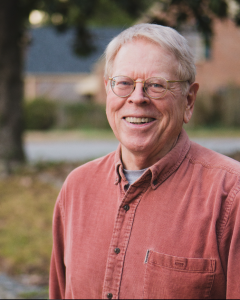 I am a political anthropologist who specializes in the study of inequalities of class, and race and their relationships to power. I have undertaken research in both Malaysia and the contemporary United States. In Malaysia, I have employed ethnographic and historical analysis in two books, the first on colonial state formation and accumulation by dispossession of the indigenous peasantry (1994), and the second on the politics of racial capitalism and transnational migration among its postwar Chinese diaspora (2015). In the United States I have led major multi-sited collaborative ethnographies leading to two books on local activism in the U.S. South, the first on local activism as constrained by neoliberalism and racial and class divisions (2007). The other (with the late Dorothy Holland), Food Activism Today: Sustainability, Climate Crisis and Social Justice (New York University Press) on local food activism, racial and class conflict, and climate crisis under late neoliberalism, is in press and will appear in 2024). I have edited or coedited three other books on Chinese transnationalism, the commons, and the politics of scale. I have taught courses in political and urban anthropology and political ecology. I am starting my new research project on a book an eco-Marxist anthropology suited to the age of post-neoliberal climate crisis, while participating as an organizer in the climate justice movement.
I am a political anthropologist who specializes in the study of inequalities of class, and race and their relationships to power. I have undertaken research in both Malaysia and the contemporary United States. In Malaysia, I have employed ethnographic and historical analysis in two books, the first on colonial state formation and accumulation by dispossession of the indigenous peasantry (1994), and the second on the politics of racial capitalism and transnational migration among its postwar Chinese diaspora (2015). In the United States I have led major multi-sited collaborative ethnographies leading to two books on local activism in the U.S. South, the first on local activism as constrained by neoliberalism and racial and class divisions (2007). The other (with the late Dorothy Holland), Food Activism Today: Sustainability, Climate Crisis and Social Justice (New York University Press) on local food activism, racial and class conflict, and climate crisis under late neoliberalism, is in press and will appear in 2024). I have edited or coedited three other books on Chinese transnationalism, the commons, and the politics of scale. I have taught courses in political and urban anthropology and political ecology. I am starting my new research project on a book an eco-Marxist anthropology suited to the age of post-neoliberal climate crisis, while participating as an organizer in the climate justice movement.
My research and teaching consider the intersections of agricultural communities, environmental health, and climate change focusing on water, agricultural disease, economics, decision-making, and policy. I study environmental conservation, pollution, water quality policy, and decision-making in the Americas. I have documented interdependent crises involving agriculture disease, climate change, and natural hazards in the Caribbean and Gulf Coast with Hurricanes Tomas in 2010 and Harvey and Maria in 2017. Additionally, I am interested in everything banana-related and have been working with farming communities in the Caribbean and Latin America and the US since 2003. As a member of the C3HE team, a NOAA CAP, I work as the internal program evaluator, support team projects, and lead research in Ocracoke, NC. I run the Socio-Ecological Change Research Lab (SECR Lab) at UNC investigating different aspects of sustainability, agriculture, inequality, water, disasters, adaptation, crisis and environmental conservation and partnering with community organizations for engaged scholarship. I am committed to actionable research outcomes and am the Co-Founder of the Culture and Disaster Action Network (CADAN).
Karla Slocum
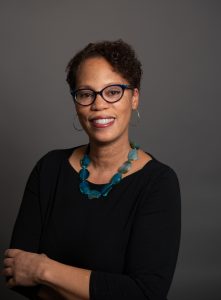 I am a cultural anthropologist interested in intersections of blackness, place and history. My research focuses on the dynamics of place identity for rural communities that are noted for their histories, associated with people of African descent and undergoing economic and social transitions. In my recent book, Black Towns, Black Futures: The Enduring Allure of a Black Place in the American West (UNC Press, 2019), I explore the contemporary social, cultural and economic attraction of U.S. rural communities known as historic Black towns . I am also developing a new project to visualize Black freedom in a digital map of US Black spaces.
I am a cultural anthropologist interested in intersections of blackness, place and history. My research focuses on the dynamics of place identity for rural communities that are noted for their histories, associated with people of African descent and undergoing economic and social transitions. In my recent book, Black Towns, Black Futures: The Enduring Allure of a Black Place in the American West (UNC Press, 2019), I explore the contemporary social, cultural and economic attraction of U.S. rural communities known as historic Black towns . I am also developing a new project to visualize Black freedom in a digital map of US Black spaces.
Angela Stuesse (RDP co-chair, 2021-22)
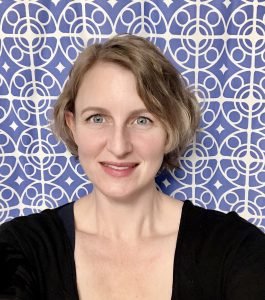 I am a cultural anthropologist broadly interested in social inequality in the Americas and specializing in methodologies of activist research. My scholarship focuses on neoliberal globalization, migration and citizenship, race and racism, intergroup relations, labor, and policing in the US and Latin America. Much of my work has explored how new Latinx migration to the US South has shaped and been shaped by the region’s racial hierarchies. I am also nurturing a growing scholarly interest in gender, political mobilization, and state repression in Equatorial Guinea, a former Spanish colony on the west coast of Central Africa. Learn more about me here.
I am a cultural anthropologist broadly interested in social inequality in the Americas and specializing in methodologies of activist research. My scholarship focuses on neoliberal globalization, migration and citizenship, race and racism, intergroup relations, labor, and policing in the US and Latin America. Much of my work has explored how new Latinx migration to the US South has shaped and been shaped by the region’s racial hierarchies. I am also nurturing a growing scholarly interest in gender, political mobilization, and state repression in Equatorial Guinea, a former Spanish colony on the west coast of Central Africa. Learn more about me here.
Patricia McAnany
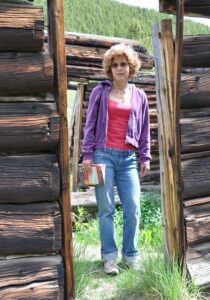 I am an archaeologist concerned with both the theory and practice of archaeology. Most of my field research has been conducted in the Maya region of southern Mexico and northern Central America. Currently, I am co-investigator of Proyecto Arqueológico Colaborativo del Oriente de Yucatán—a project that is researching the material imprint of Spanish Colonialism at the mission town of Tahcabo in Yucatán, Mexico. As one of the founding members of the UNC Graduate Certificate in Participatory Research, I value a kind of archaeology that is community-collaborative. Through my UNC program, InHerit: Indigenous Heritage Passed to Present (in-herit.org), we work to magnify Native voices in education and heritage conservation. When telling a story about the past, we bring to the forefront Indigenous languages, culture, and, survivance whether the content is destined for public school curriculum within the Maya region, within NC, or on the walls of a community museum. Towards these ends, I have been fortunate to have received financial support from the Z. Smith Reynolds Foundation, National Science Foundation, the Archaeological Institute of America, the Guggenheim Foundation, the John Carter Brown Library, and the National Endowment for the Humanities among others.
I am an archaeologist concerned with both the theory and practice of archaeology. Most of my field research has been conducted in the Maya region of southern Mexico and northern Central America. Currently, I am co-investigator of Proyecto Arqueológico Colaborativo del Oriente de Yucatán—a project that is researching the material imprint of Spanish Colonialism at the mission town of Tahcabo in Yucatán, Mexico. As one of the founding members of the UNC Graduate Certificate in Participatory Research, I value a kind of archaeology that is community-collaborative. Through my UNC program, InHerit: Indigenous Heritage Passed to Present (in-herit.org), we work to magnify Native voices in education and heritage conservation. When telling a story about the past, we bring to the forefront Indigenous languages, culture, and, survivance whether the content is destined for public school curriculum within the Maya region, within NC, or on the walls of a community museum. Towards these ends, I have been fortunate to have received financial support from the Z. Smith Reynolds Foundation, National Science Foundation, the Archaeological Institute of America, the Guggenheim Foundation, the John Carter Brown Library, and the National Endowment for the Humanities among others.
Affiliated Faculty
Maya Berry
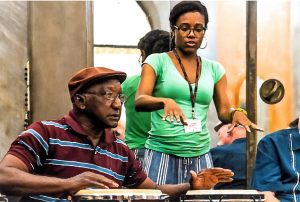 I am a sociocultural anthropologist who specializes in performance studies and African diaspora studies. My work uses a black feminist approach to understand racialized and gendered experience, social formations, performance practices, and political imaginaries. Using performance as an analytical lens, I focus on both the movements of body politics and the corporeal bodies that constitute those political movements. This allows for consideration of how political economy, racial formation, and embodiment all play a role in political praxis. An adjacent project critically interrogates the embodied aspects of conducting engaged research in post-colonial contexts, theorizing from the specificity of black women’s sexed and raced relationship to these sites of investigation.
I am a sociocultural anthropologist who specializes in performance studies and African diaspora studies. My work uses a black feminist approach to understand racialized and gendered experience, social formations, performance practices, and political imaginaries. Using performance as an analytical lens, I focus on both the movements of body politics and the corporeal bodies that constitute those political movements. This allows for consideration of how political economy, racial formation, and embodiment all play a role in political praxis. An adjacent project critically interrogates the embodied aspects of conducting engaged research in post-colonial contexts, theorizing from the specificity of black women’s sexed and raced relationship to these sites of investigation.

